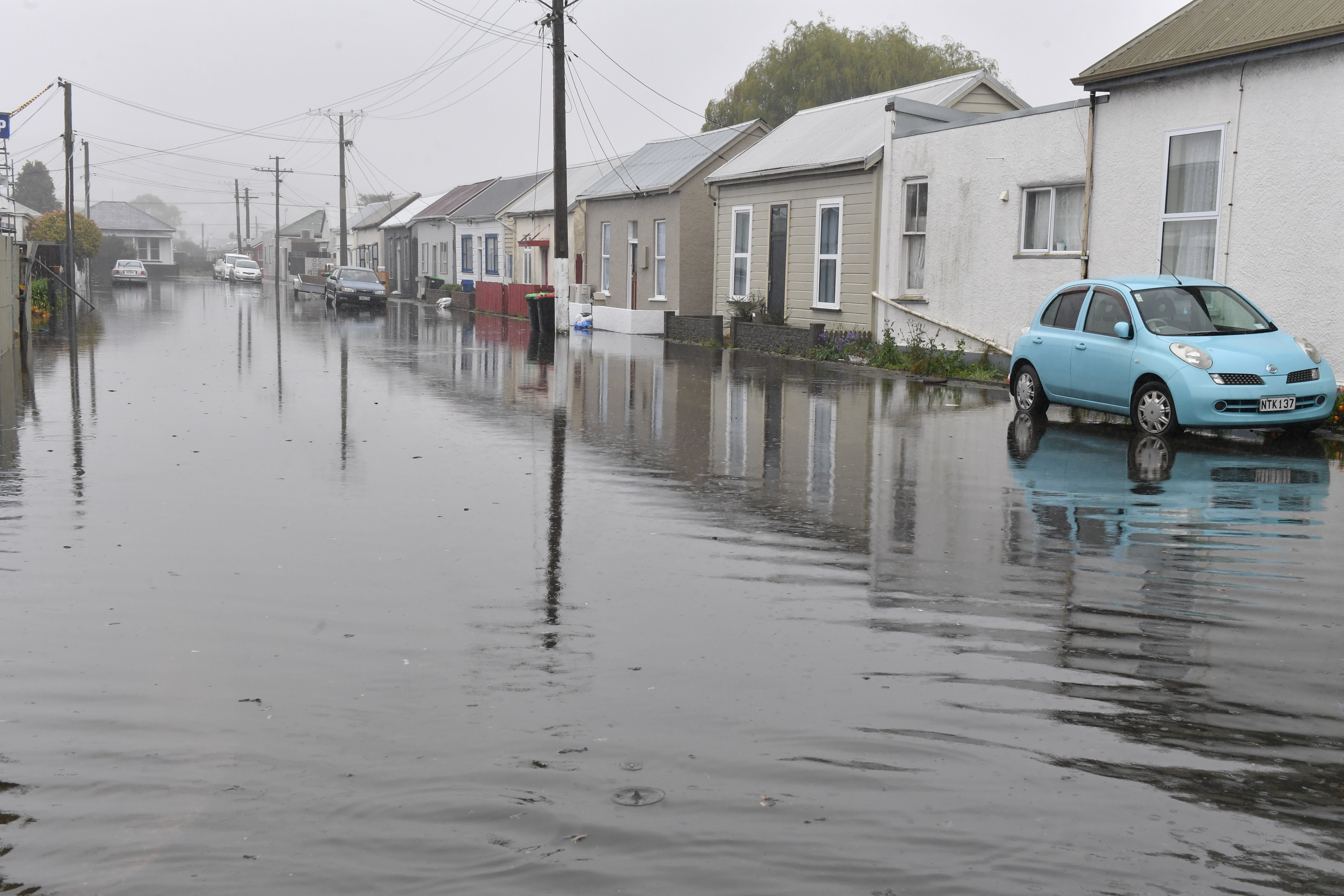
Still, a longtime public policy researcher says the bigger picture - the scale of the problem and the lack of political will to address the challenges - makes it "impossible to be optimistic about the future".
South Dunedin Future programme manager Jonathan Rowe said there was no doubt South Dunedin faced challenges due to its geography - in storms, a lot of water drained from the hills into the area, a low-lying, flat basin with no natural outflow for the water.
Yet, the flooding caused by persistent heavy rain at the start of the month was a "shot in the arm" for the work programme and decision-makers.
And, further, it showed that being prepared could help.

"It's just that we need to think a little bit bigger, and a little bit more long-term on that - and we can continue to do that in the future," Mr Rowe said.
This flood too would provide valuable information.
"I wouldn't want it to be implied that I'm pleased about the [flooding] event because it helps us. It's just that we can ... get some good out of a bad situation," he said.
The flooding would help to calibrate flood models and "ground truth", South Dunedin Future’s forthcoming detailed risk assessment, due early next year.
The flood this month was also a reminder of what the coastal suburb was facing - more frequent and more severe weather, he said.
Alongside its risk assessment, the South Dunedin Future programme was identifying options that would include short-term "no regrets" actions, such as beefing up the Three Waters network of pumps and pipes in the area.
It was also looking at "changing the city" or redesigning elements of it "that could make it not just safer, but also better, and that's the reason for optimism".
"Previously, there was a sense of pessimism, this kind of binary where, ‘OK, we dig in for as long as we can in South D, and then there's a date where we all need to leave.’
"I don't think that's the case. But we are going to need to change, and the South Dunedin Future programme is all about the conversation and what does that change look like."

"And if that process is done thoughtfully and equitably and with co-operation from the local community, then there is, if you like... an optimistic way forward."
But South Dunedin was a microcosm of the problems communities would face all around the coastline in New Zealand.
Realistically, the global economy was not being decarbonised fast enough to avoid multi-metre sea-level rise, Prof Boston said.
"And there's no way that South Dunedin will survive that."
In the suburb, there were several thousand properties that were already only about a-third of a metre above high spring-tide level.
And there was an eroding coastline, which without "enormous expenditure" would be impossible to protect over the long term of 100 to 150 years.
"You add half a metre of sea-level rise, more severe storms, more severe landslides, and you get into a situation where you'll have increasing disruption to normal life.
"I have to be honest, I find it impossible to be optimistic about the future," Prof Boston said.
"I think we have to be realistic; I think realism points to a rather forbidding future."
The situation was "all the more disturbing" because many politicians "globally, as well as locally", were not taking the risk climate change presented seriously.
There had been prevarication for a decade or more.
"Governments of both the centre-left and the centre-right have kind of just been kicking the can further down the road.
"The current government is no exception, and the previous government was no exception.
"And it's all very frustrating, frankly.
"The sooner we have a proper national framework with a proper funding system for planned relocation, the better."














